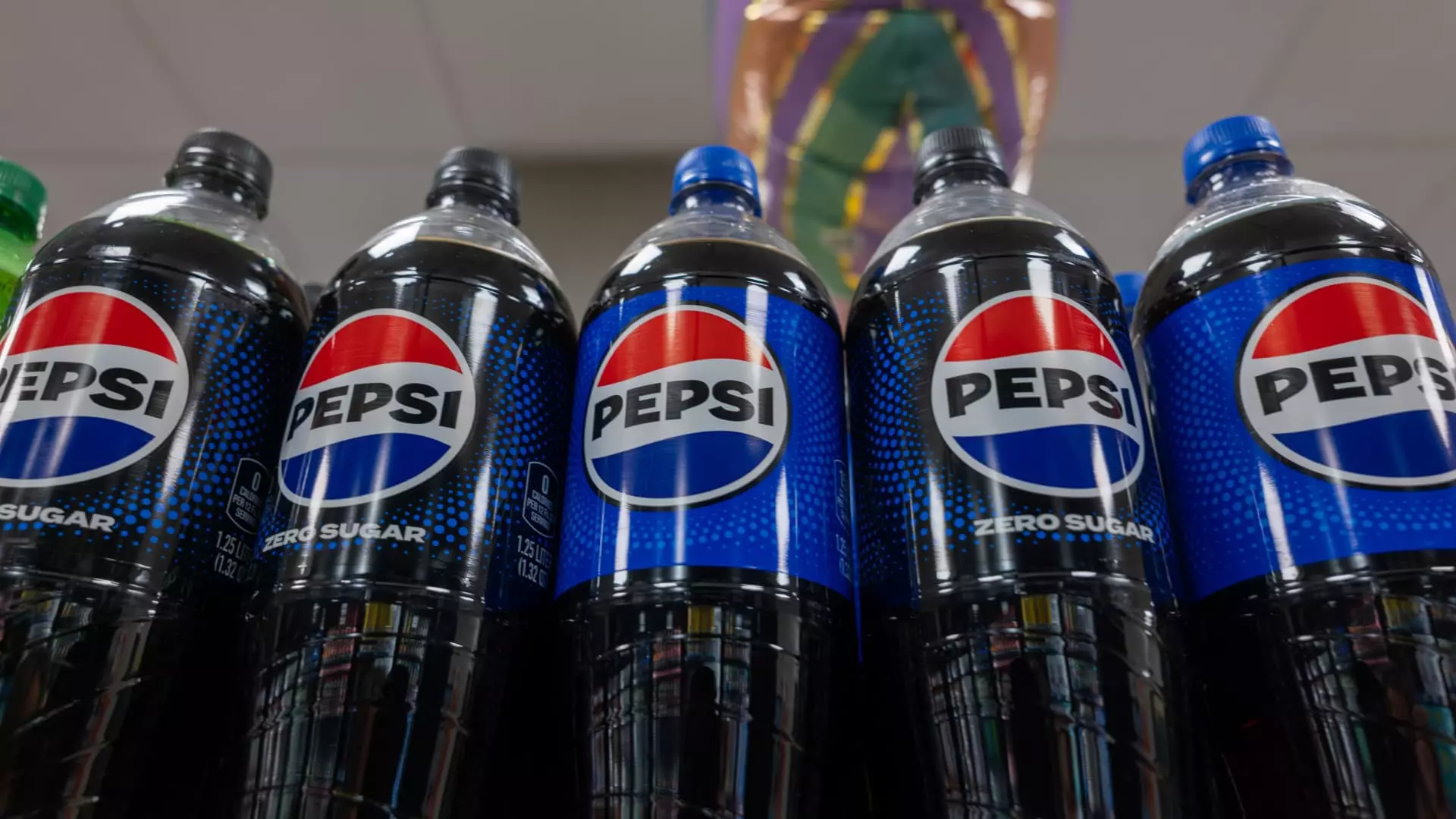PepsiCo’s latest quarterly earnings report reflects a company grappling with the paradox of robust international sales against the backdrop of a troubling domestic market. This dissonance characterizes the complexities that modern businesses must navigate, particularly in the food and beverage sector. Yet, the numbers tell a more intricate story. PepsiCo’s earnings per share fell short of analyst expectations by a narrow margin, signaling the market’s trepidation as the company reported $1.48, slightly below the anticipated $1.49. Although revenue managed to surpass forecasts at $17.92 billion, reflecting an aggregate performance, the critical takeaway is that this upward momentum masks underlying weaknesses in core markets, particularly in North America—an area that has historically been a powerhouse for PepsiCo.
The reduction in forecast for core constant currency earnings per share sends a strong signal of caution. While the company previously aimed for mid-single-digit growth, it has now adjusted its expectations to reflect stability rather than optimism. This appears to be a defensive maneuver in response to a mélange of factors causing economic instability. With CEO Ramon Laguarta acknowledging rising supply chain costs and new tariffs, the strategic planning of the organization needs to evolve to keep up with the ever-increasing costs of doing business in a volatile economic landscape.
The Influence of Consumer Behavior
Consumer sentiment plays a pivotal role in shaping corporate prospects, and in recent months, PepsiCo has observed how inflation and economic uncertainty have impacted buying behavior. The company’s powerful brands have not been immune to the tightening of household budgets; consumers are increasingly value-conscious, altering shopping patterns significantly. This is evident in the 3% drop in worldwide volume for Pepsi’s convenient foods unit and the flat performance in the beverages segment.
PepsiCo’s adaptive strategies will be crucial moving forward. For example, the decision to explore multicultural and functional products signifies an understanding of shifting consumer preferences, where health-conscious options are now more than just trends—they are expectations. The recent acquisitions, like that of Poppi, showcase their proactive approach to staying relevant in the evolving marketplace. However, these adaptations must be complemented by execution, as increased in-store availability and effective placement of new products are equally critical to capturing consumer interest.
Navigating Economic Headwinds
The dual challenge of economic pressure and shifting consumer dynamics sets a daunting stage for PepsiCo. With inflation impacting both consumer spending and supply chain dynamics, the food and beverage conglomerate is at a crossroads. The CEO’s acknowledgment of the potential volatility associated with global trade developments raises pressing questions about the broader economic environment. Companies like PepsiCo not only have to contend with tariffs but must also grapple with the unpredictable nature of international markets.
This critical economic landscape demands nimbleness from corporations. Successfully navigating these headwinds requires not just cutting costs but also innovating and adapting product lines to better align with consumer needs—all while ensuring that their actions yield measurable results. It’s a fine balancing act, particularly when market conditions are constantly in flux.
PepsiCo’s declining performance in North America invites a deeper examination of their strategic frameworks. The gains made by brands like Pepsi Zero Sugar and Miss Vickie’s chips showcase that there is room for growth within specific niches. However, these bright spots may not be sufficient to offset larger declines across the portfolio. This raises the important question: can PepsiCo maintain its market leadership while compellingly addressing the shifting dynamics of a prudently resourceful consumer base?
PepsiCo’s trajectory will undoubtedly remain a topic of keen interest for investors and industry watchers alike. With expectations tempered and challenges mounting, the company must rally its resources and innovation capabilities to sustain both consumer affinity and shareholder confidence. The road ahead is fraught with uncertainties, yet it is precisely these challenges that could galvanize a more resilient corporate identity for PepsiCo if they choose to embrace change rather than resist it.

